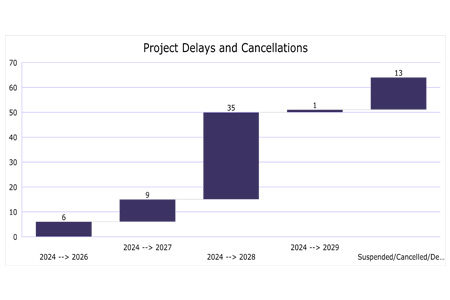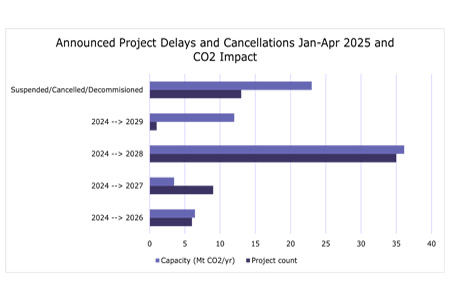National University of Singapore’s Energy Studies Institute and FutureScaleX release new policy brief on US climate policy reversal and Asia’s growing CCS opportunity
Published by Alfred Hamer,
Editorial Assistant
World Pipelines,
The Energy Studies Institute (ESI) at the National University of Singapore (NUS), in collaboration with FutureScaleX, has released a new policy brief examining how shifts under the second Trump administration are disrupting carbon capture and storage (CCS) momentum in the US – and what this means for Asia’s growing role in global decarbonisation.

Titled “What the Trump Presidency Means for CCS: Policy Shifts and Opportunities for Asia,” the brief provides new analysis of stalled US project pipelines, modelling on the economic impact of new import tariffs, and a growing innovation gap that now favours East Asia.
“This policy brief sheds light on how consistent long-term policy frameworks and regional collaboration can enhance Asia’s position in global carbon management,” said Dr. Sita Rahmani, Research Fellow at NUS ESI. “The commitment to low-carbon industry development in Asia should remain unwavering, despite policy changes in other regions.”
Key insights include:
- Policy withdrawal: Executive Order 14154 and proposed repeal of the 45Q tax credit have placed over 75 US CCS projects under review or delay.
- Tariff impact: modelling shows a significant cost increase for CCS projects in the US due to rising input tariffs – particularly for steel and cement-based infrastructure.
- Innovation shift: Asia now accounts for 74% of global CCS patents as of 2024, with China, Korea, and Japan accelerating R&D and deployment.
- Strategic outlook: Asia’s consistent policy direction, innovation capacity, and growing cross-border CCS cooperation signal its rising influence on the global stage.

“If US policy incentives are rolled back, Asia won’t just fill the void, it will accelerate past,” said Kevin Pang, Senior Vice President at FutureScaleX and Co-Author of the brief. “Our modelling shows that without predictable US support, only the highest-purity emitters can achieve viable payback while Asia’s stable regulations and maturing innovation ecosystem create a more attractive environment for CCS investment.”
The policy brief was co-authored by Dr. Sita Rahmani and Shee Jia Chew of NUS ESI and Kevin Pang and Pardeep Pal of FutureScaleX, with contributions from additional technical analysts.
Read the latest issue of World Pipelines magazine for pipeline news, project stories, industry insight and technical articles.
World Pipelines’ July 2025 issue
The July 2025 issue of World Pipelines covers horizontal directional drilling, pipeline pigging, supply chain monitoring, weld management, cathodic protection, and pipeline projects in South America.
Read the article online at: https://www.worldpipelines.com/special-reports/31072025/national-university-of-singapores-energy-studies-institute-and-futurescalex-release-new-policy-brief-on-us-climate-policy-reversal-and-asias-growing-ccs-opportunity/
You might also like
The World Pipelines Podcast
A podcast series for energy professionals featuring short, insightful interviews with experts who can shed light on topics that matter to you and your business. Subscribe on your favourite podcast app to start listening today.

